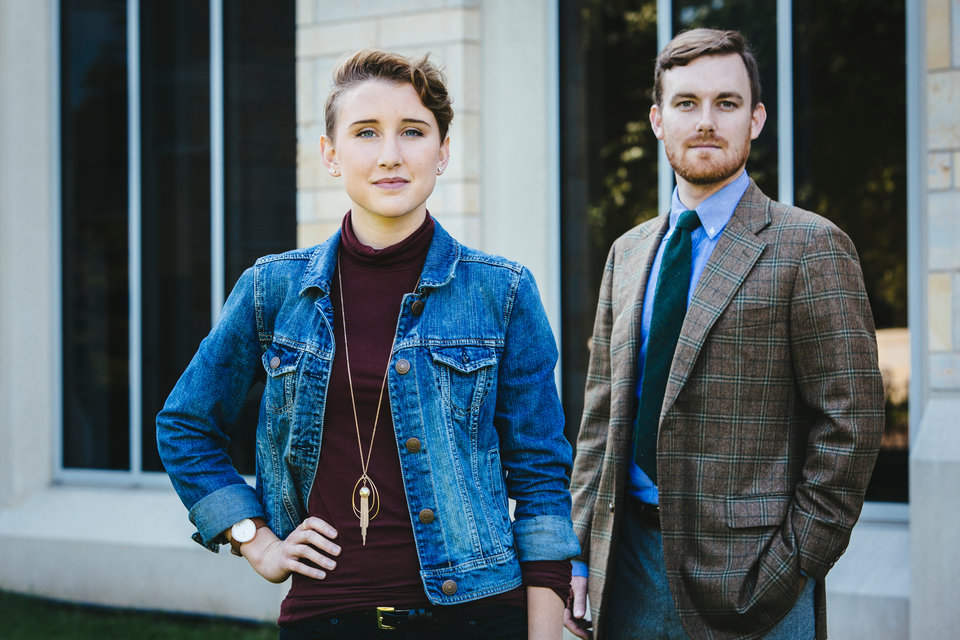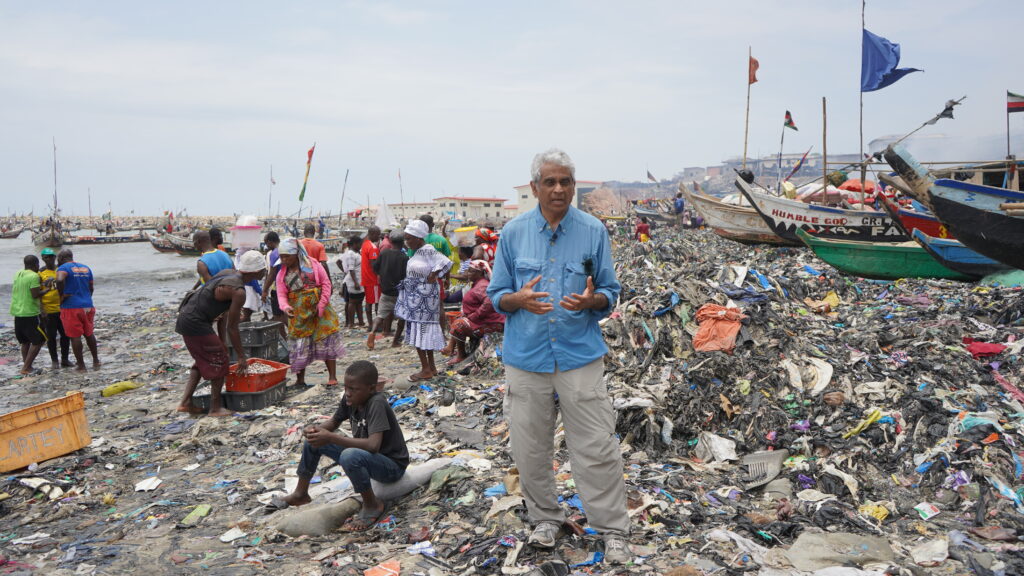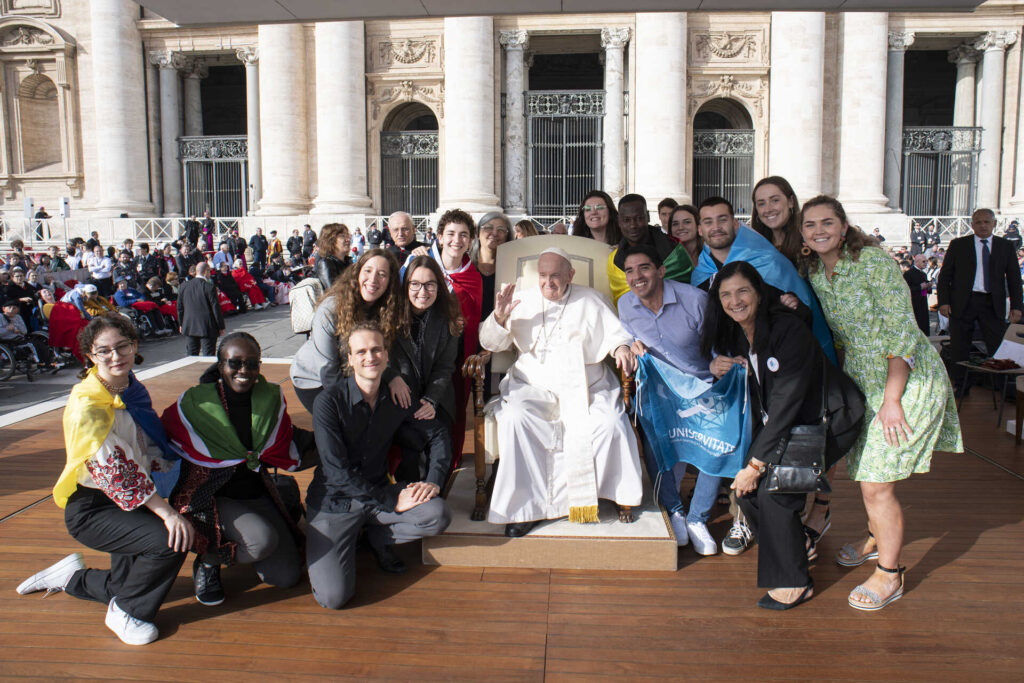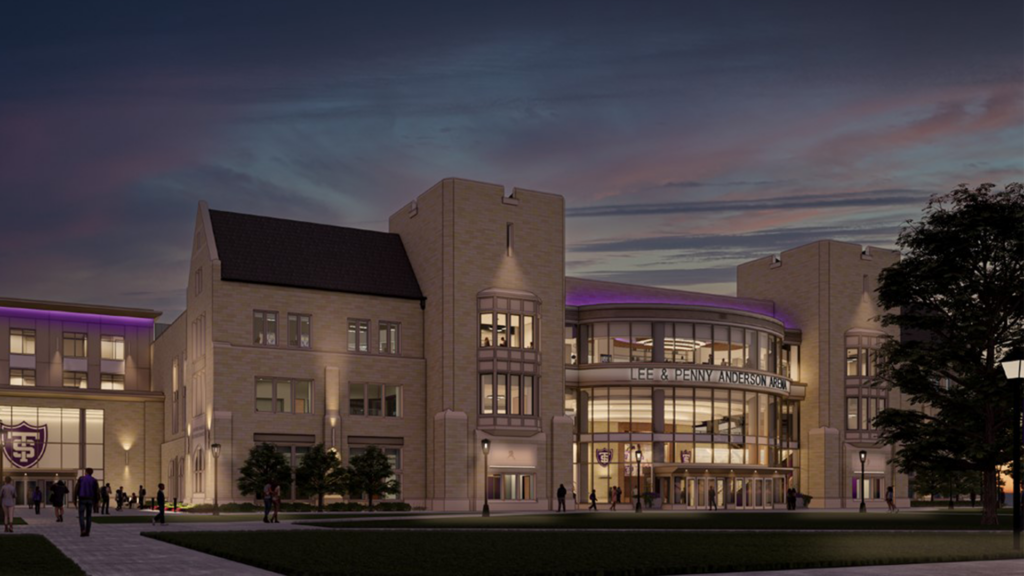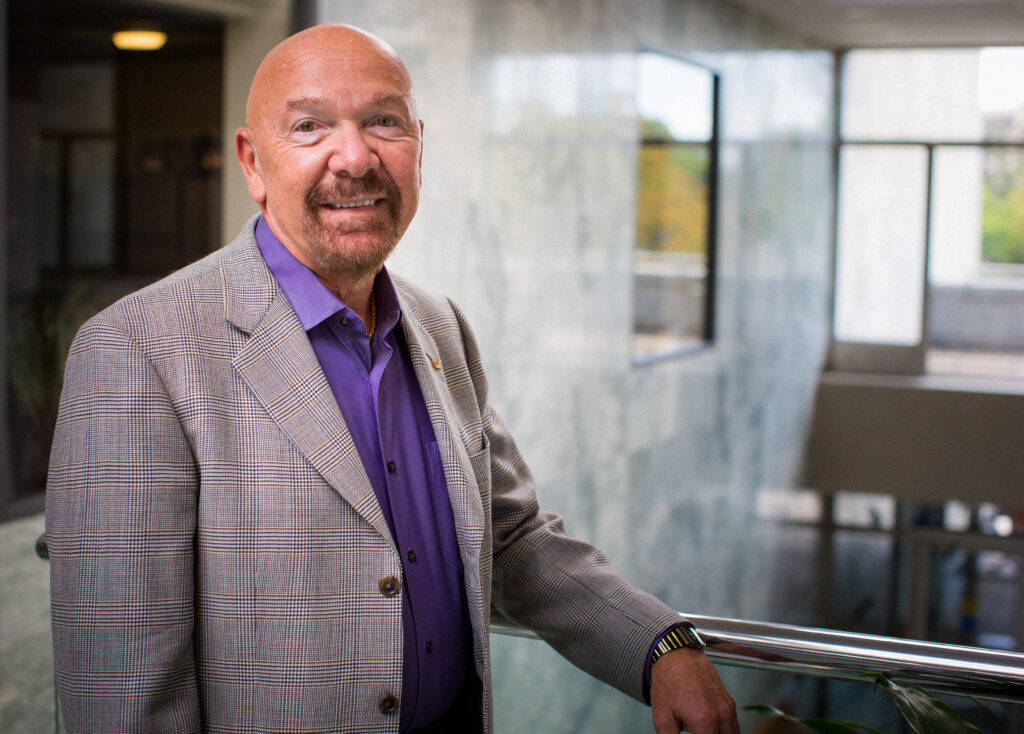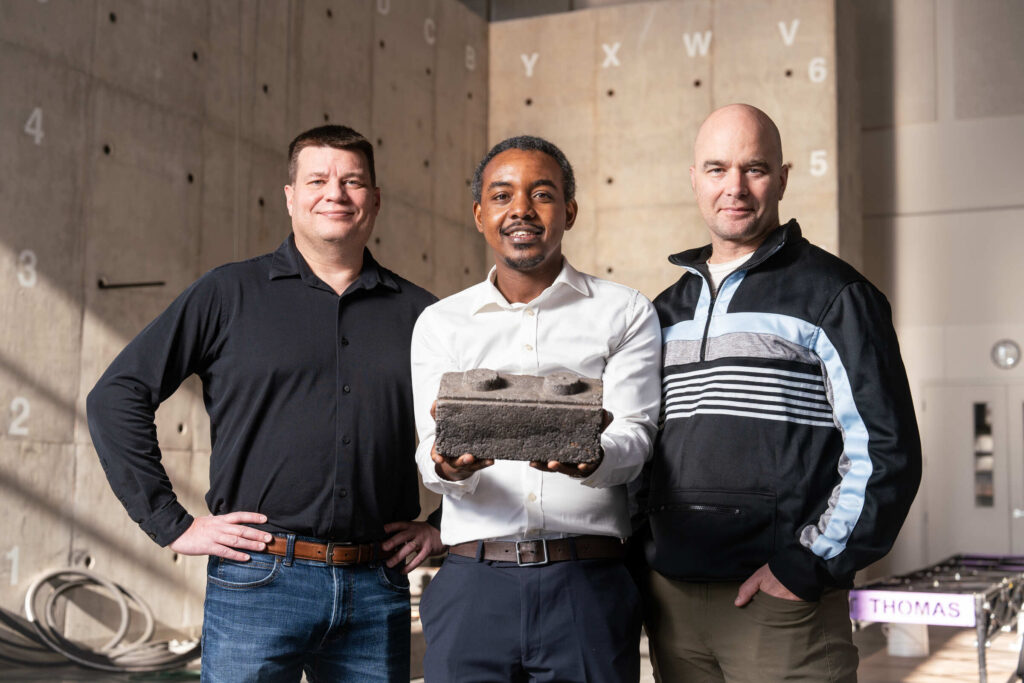Last year the University of St. Thomas joined the Free Project, a growing network of 22 colleges and universities that have banded together to fight modern slavery worldwide.
St. Thomas history professor David Williard, Ph.D., saw St. Thomas as a perfect fit to undertake the aims of the international organization’s mission. But he, along with the early members of St. Thomas’ chapter, have big, far-reaching dreams for the project – so big that even the national Free Project organizers called their objectives “pretty ambitious."
"I thought that we could do this in a way that not every university really could," Williard said. “Most chapters are more like a student club that do one event per semester that’s sponsored by the university. While that’s worthwhile, I am very invested in Free Project being deeply integrated into the unique context of St. Thomas.”
Williard's aim is for Free Project to touch on all aspects of university life at St. Thomas in coming years – not only bringing light to the "unspoken problem of slavery in the 21st century" but also spurring a sort of zeitgeist across the university in which students initiate their own independent passion projects that raise consciousness for the ways slavery manifests itself in today’s world.
He believes the Free Project will be an instrumental channel for bringing faculty and students from diverse disciplines together for intellectual collaboration and social advocacy.
"Part of this is an appeal to our students that they not be passive,” Williard said. “A university is valuable because our students contribute to that value by embracing it, by making decisions about what's important to them and what their investment in those problems will be ... at least raising consciousness among their peers and communities.”
The St. Thomas chapter will do some programming, but Williard emphasized that the chapter’s main aim is driven by faculty and student research interests.
This means hosting events and discussions when a particular topic or theme arises in the campus community, such as last November’s "Is Slavery Dead?" panel – the project's official launch event – that members of the project organized.
The panel brought together four St. Thomas faculty and a St. Thomas student, junior and co-president of the History Club Whitney Oachs. Oachs presented her research on how the Western world’s desire for fast fashion contributes to the debt bondage and enslavement of women working in the fashion industry in developing countries in Southeast Asia. Other topics presented included sex slavery in Thailand and the downfall of a small Missouri town founded and populated by the grandchildren of former slaves, among other topics.
This year Oachs hopes to connect her research under a Young Scholars Grant with the Free Project's mission. Her work focuses on the displacement of communities of color in Minneapolis and St. Paul with the construction of I-94, and her belief that the politics of “root shock” here and across America are embedded deeply in the legacy of slavery, rights and citizenship in America.
“The Free Project at St. Thomas has challenged me in ways I never thought possible, and my involvement in the organization has broadened my scope on what history means, and what my history education can do to better our contemporary world,” she said. “It has given me a way to talk about social injustices with a historical context, and inspires me every day to push for positive change both locally and globally.”
This year Williard also is collaborating with Kim Vrudny, Ph.D., of St. Thomas’ Theology Department to create a regular system of engagement courses that would allow students to work with local organizations, like those that address human trafficking. The courses will provide students another way of compiling a meaningful portfolio that represents their interests, what he called "a clear set of accomplishments toward a problem they are deeply invested in, so when they think about post-graduate opportunities they'll have some direction.”
Another Free Project endeavor Williard hopes to launch soon is a website that would serve as a "clearinghouse" where faculty and students could search for others with similar research interests to collaborate on academic projects and where students can find a mentor.
"In a perfect world, I'd like to see students have dreams and these questions burning in their souls," Williard said. "In many cases they just need to be given the encouragement to say, 'I'm going to put my voice out there.'"
